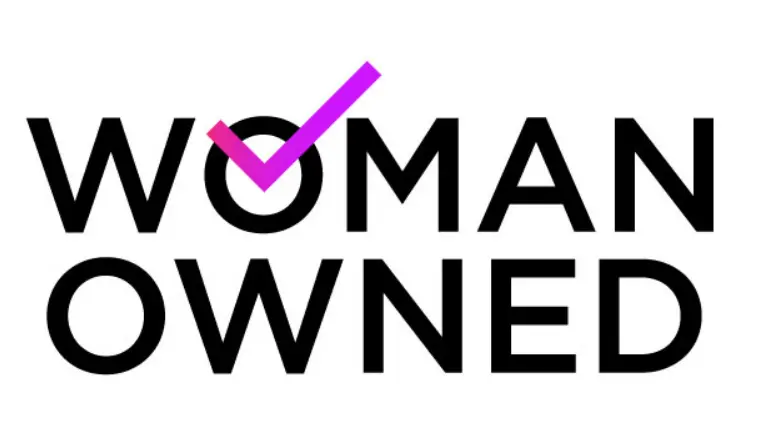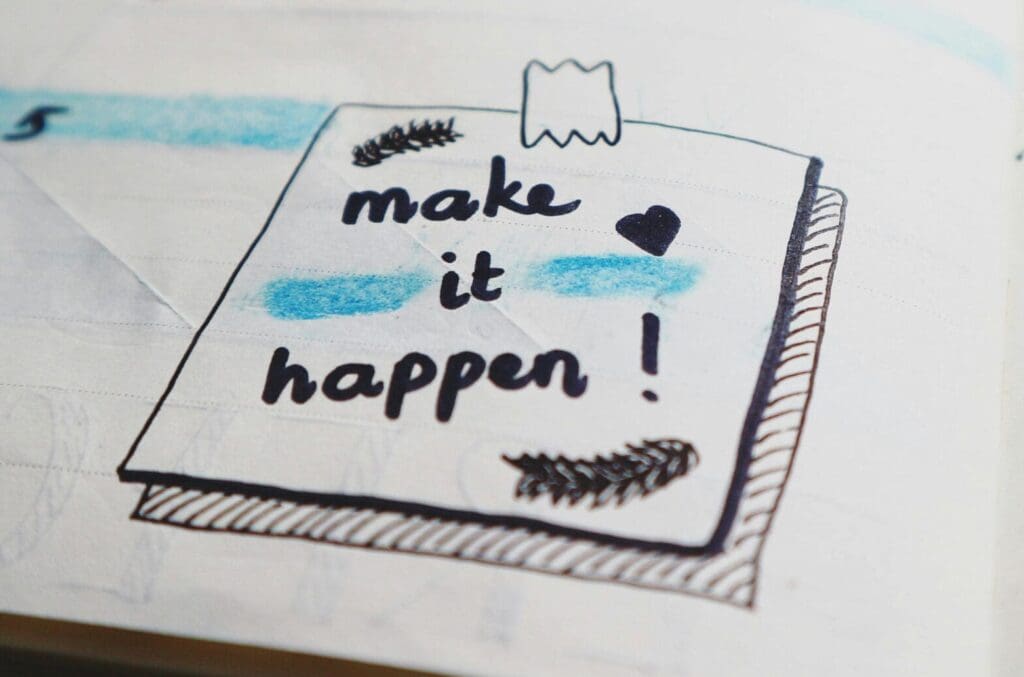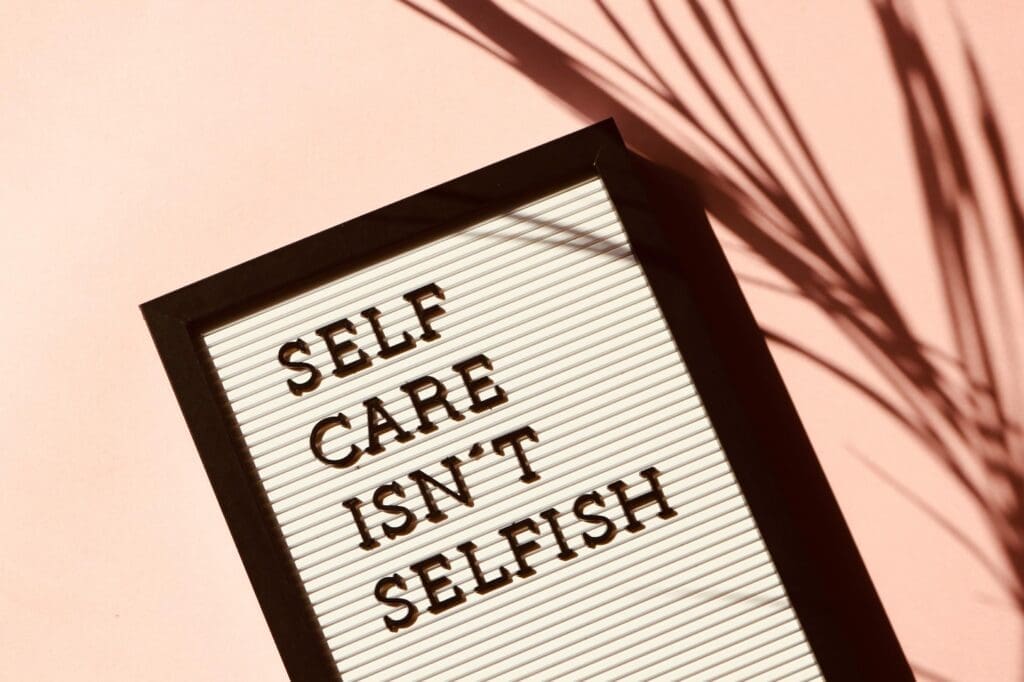The following books offer powerful strategies to help you transform your mindset. Each one presents unique tools for breaking through mental barriers and overcoming limiting beliefs. The authors not only provide guidance but also inspire confidence in your ability to shift your perspective and step into a more empowered version of yourself.
****
Can’t Hurt Me: Master Your Mind and Defy the Odds By David Goggins
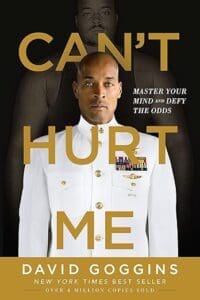
In Can’t Hurt Me, David Goggins shares his remarkable journey from an abusive childhood and unfulfilling early adulthood to becoming a Navy SEAL, ultra-endurance athlete, and world record holder. He introduces the concept of the “40% Rule,” arguing that most people only tap into 40% of their potential, and provides realistic mental tools to push beyond perceived limitations. Goggins emphasizes developing a “calloused mind” through embracing discomfort, using accountability mirrors, and challenging yourself with increasingly difficult goals. The book is both a memoir and a guide to achieving personal greatness by confronting pain, overcoming self-doubt, and building mental resilience.
Why Is This Book Helpful?
Goggins’ raw account of overcoming extreme adversity provides readers with actionable mental frameworks for pushing beyond their perceived limitations. His concept of the “calloused mind” offers practical tools for building resilience by deliberately seeking out challenges rather than avoiding discomfort. The book’s power lies in demonstrating how confronting your weaknesses and embracing suffering can transform self-perception and unlock previously untapped potential in any area of life.
Blink: The Power of Thinking Without Thinking By Malcom Gladwell
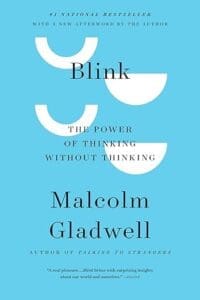
In Blink, Malcolm Gladwell explores the power of snap judgments and rapid cognition. He examines both the remarkable accuracy of these instant assessments when they are based on expertise and experience, as well as how they can be dangerously biased by prejudices and stereotypes we may not even realize we harbor. Through engaging stories, Gladwell reveals how these rapid judgments operate below our conscious awareness yet profoundly influence our decisions. The book ultimately argues that we can improve our snap judgments by training our intuition and learning when to trust our instinct versus when to deliberately slow down our thinking.
Why Is This Book Helpful?
Blink helps readers understand how their unconscious mind makes split-second decisions that often prove remarkably accurate but can sometimes lead them astray due to hidden biases. By illuminating the mechanics of rapid cognition, Gladwell provides insights for recognizing when to trust intuitive judgments and when more deliberate analysis is needed. The book also offers valuable tools for improving decision-making in both professional and personal contexts.
Get Out of Your Mind & Into Your Life By Steven C. Hayes & Spencer Smith
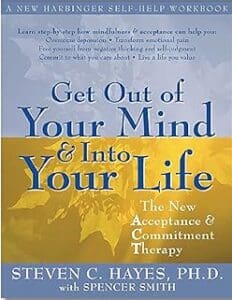
In Get Out of Your Mind & Into Your Life, psychologist Steven C. Hayes and co-author Spencer Smith present Acceptance and Commitment Therapy (ACT) as a revolutionary approach to overcoming psychological suffering. Rather than fighting against painful thoughts and emotions, the authors encourage readers to accept them while simultaneously committing to actions that align with their deepest values. They introduce mindfulness techniques that help individuals recognize the difference between their thoughts and their actual selves, creating psychological flexibility. The book guides readers through identifying core values and taking committed action toward a meaningful life, even in the presence of difficult emotions and experiences.
Why Is This Book Helpful?
This book offers a transformative approach to psychological well-being by teaching readers how to accept difficult thoughts and feelings rather than struggling against them. The book’s ACT techniques provide tools to create distance from painful mental experiences without being controlled by them. By focusing on values-based action instead of emotional control, it empowers readers to build rich, meaningful lives even while experiencing psychological discomfort.
The Subtle Art of Not Giving a F*ck By Mark Manson
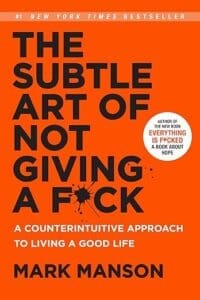
Mark Manson’s book, The Subtle Art of Not Giving a F*ck, challenges the conventional self-help approach. Manson argues that we should find better problems that are worth solving. He claims that accepting negative experiences, emotions, uncertainties, and confronting our limitations will lead to authentic happiness. The book combines philosophical concepts, humor, and direct language to guide readers toward a more grounded approach to life that embraces struggle as meaningful rather than something to be avoided.
Why Is This Book Helpful?
The Subtle Art of Not Giving a F*ck helps readers cut through life’s noise by teaching them to be selective about what deserves their limited emotional energy and attention. Manson’s counterintuitive approach liberates people from the toxic positivity trap, showing how embracing discomfort and failure can actually lead to greater fulfillment. The book provides wisdom for developing resilience by focusing on what truly matters while letting go of societal expectations and superficial concerns that create unnecessary suffering.
